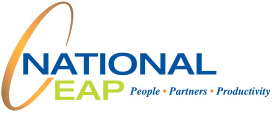Written By: Edith Keenly, MS,NCC
As an EAP counselor and military veteran, I have encountered many individuals who have expressed suicidal ideation, and it is a delicate situation that requires immediate attention and specialized care.
When working with clients experiencing suicidal thoughts, my primary focus is on ensuring their safety and providing a supportive environment. I approach these situations with empathy, active listening, and non-judgmental understanding.
Identifying symptoms of suicidal ideation enables early intervention and prevents crises from escalating. Prompt recognition allows employers and managers to connect individuals with appropriate mental health resources, including their EAP, and community support systems.
By recognizing symptoms of suicidal ideation, employers and managers contribute to reducing the stigma associated with mental health issues, and when leaders openly acknowledge and address these concerns, it encourages employees to seek help and support without fear of judgment or reprisal.
Employers play a crucial role in creating a supportive work environment and promoting employee well-being. Here are some proactive steps employers can take to address suicide ideation:
- Promote mental health awareness: Educate employees about mental health, common signs of distress, and available resources. Encourage open conversations about mental well-being, reducing the stigma surrounding mental health issues.
- Implement comprehensive mental health policies: Establish clear policies and guidelines that support employees’ mental health, including resources for seeking help, reasonable accommodations, and the protection of confidentiality.
- Provide mental health training: Offer training sessions or workshops for managers and supervisors on recognizing signs of distress, how to respond empathetically, and referral procedures for accessing mental health resources.
- Promote your employee assistance programs (EAP): EAP is a confidential support service that provides employees with access to counseling and mental health resources. Ensure that employees are aware of these services and encourage their utilization.
- Foster a supportive work culture: Create a culture that values work-life balance, stress management, and self-care. Encourage employees to take breaks, use their vacation time, and maintain healthy boundaries between work and personal life.






